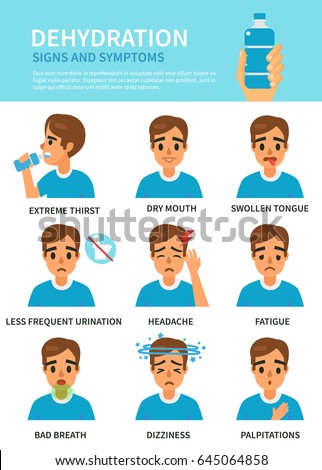Due to extreme heat, increasing cases of vomiting and diarrhea infections, and limited availability of water, there have been many cases of dehydration seen in medical camp. This dehydration can lead to significant problems like fainting, heat stroke, and even worse issues for people with diabetes, high blood pressure, or heart problems.
The signs and symptoms of dehydration may differ by age.
Infant or young child
- Dry mouth and tongue
- No tears when crying
- No wet diapers for three hours
- Sunken eyes, cheeks
- Sunken soft spot on top of skull
- Listlessness or irritability
Adult
- Extreme thirst
- Less frequent urination
- Dark-colored urine
- Fatigue
- Dizziness
- Confusion
Management of Dehydration:
For infants and children who have become dehydrated from diarrhea, vomiting or fever, use an oral rehydration solution such as ORS, Pedialyte, or Hydralyte. These solutions contain water and salts in specific proportions to replenish both fluids and electrolytes.
Start with about a teaspoon (5 milliliters) every one to five minutes and increase as tolerated. It may be easier to use a syringe for very young children. Older children can be given diluted 7-up or Sprite. Use 1 part sports drink to 1 part water.
Most adults with mild to moderate dehydration from diarrhea, vomiting or fever can improve their condition by drinking more water or other liquids. Diarrhea may be worsened by full-strength fruit juice and soft drinks.
See a doctor at the medical camp if you have any of the following:
- Has had diarrhea for 24 hours or more
- Is irritable or disoriented and much sleepier or less active than usual
- Can't keep down fluids
- Has bloody or black stool

No comments:
Post a Comment